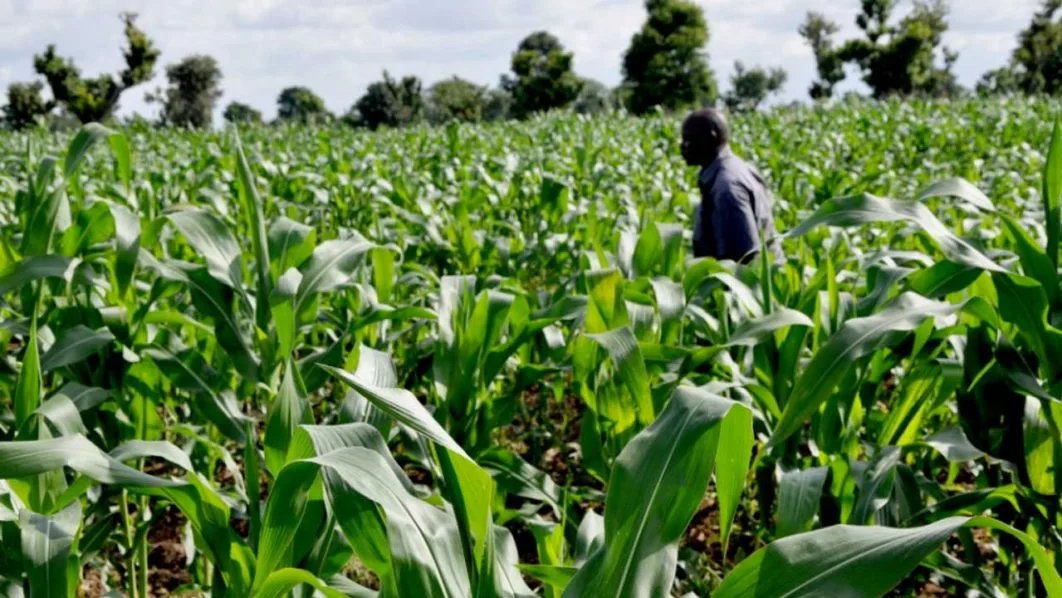No gainsaying that Nigeria remains a country with vast agricultural resources and potential. With over 84 million hectares of arable land and a rapidly growing population of more than 200 million people, agriculture plays a crucial role in the country’s economy. However, the agricultural sector in Nigeria has faced significant challenges in recent years, including low productivity, inadequate infrastructure, and limited access to credit and market information.
To revamp the agriculture sector, the incoming administration of the president-elect, Bola Ahmed Tinubu, especially must undertake significant reforms and investments to modernise farming practices, improve productivity and promote sustainable agriculture.
According to experts, one key area where Nigeria needs to invest in is modernising the farming practices. Nigeria’s agricultural practices are predominantly subsistence farming, which limits productivity and output. Although in recent years, the government has implemented several programs to encourage commercial farming and modernise the sector.
One such initiative is the Anchor Borrowers Program, which provides smallholder farmers with access to credit, inputs, and training. Additionally, the government has introduced several policies aimed at boosting agricultural productivity and promoting sustainable agriculture, such as the National Livestock Transformation Plan and the Green Alternative.
Another critical area that requires investment is the improvement of infrastructure. Nigeria’s infrastructure deficit is a significant constraint to agricultural development. Poor roads, inadequate power supply, and lack of access to water for irrigation are major challenges that farmers face.
To address these challenges, the government must invest in rural infrastructure development, such as constructing roads, dams, and irrigation systems. The private sector can also play a significant role in this regard by investing in agricultural infrastructure projects.
Furthermore, Nigeria must improve access to credit and market information to enable farmers to improve their productivity and profitability. Many farmers lack access to credit, which limits their ability to invest in modern inputs, such as improved seeds, fertilisers, and pesticides and also implement policies that make credit accessible to farmers at reasonable rates.
Additionally, the government can provide farmers with market information to help them make informed decisions on production and pricing. This information can be disseminated through mobile phones, radio, and other communication channels.
Promoting sustainable agriculture is another area where Nigeria can revamp its agricultural sector. Sustainable agriculture involves the adoption of practices that conserve natural resources, protect the environment, and enhance the quality of life for farmers and society as a whole.
In Nigeria, sustainable agriculture practices include conservation agriculture, organic farming, and agroforestry. Sustainable agriculture practices can help to reduce greenhouse gas emissions, improve soil health, and conserve water resources. The government can promote sustainable agriculture practices by providing incentives, such as subsidies and technical assistance, to farmers who adopt these practices.
Speaking at an event recently, minister of agriculture and rural development, Dr Mohammad Mahmood Abubakar, said everyone must get involved, reduce food waste and help feed millions so that hunger-related problems around the world would significantly reduce.
He said, “The day is like a reminder to eat mindfully and consider that millions of people are unable to afford one meal for themselves. It is important that we rededicate ourselves to this very important event and its purpose by drawing attention through global awareness, bold action and innovation to enhance effectively the channels that make our food systems stronger and more equitable.
“In the face of global crises and escalating threats therefore, global solutions are needed more than ever to safeguard life and transform our agri-food systems.
“Let me reaffirm that, a renewed commitment between Food and Agriculture Organization (FAO) and the Nigerian government is in focus for continuous collaboration to strengthen the Agricultural sector and enhance food and nutrition security while contributing to the eradication of poverty, hunger and malnutrition in Nigeria,” the minister added.
Overall, revamping Nigeria’s agriculture sector requires significant investments in modernising farming practices, improving infrastructure, enhancing access to credit and market information, and promoting sustainable agriculture.
The federal and state government must prioritise agricultural development and work closely with the private sector and development partners to implement the necessary reforms and investments. If Nigeria can revamp its agricultural sector, it can unlock the country’s vast agricultural potential and contribute to poverty reduction and economic development.





